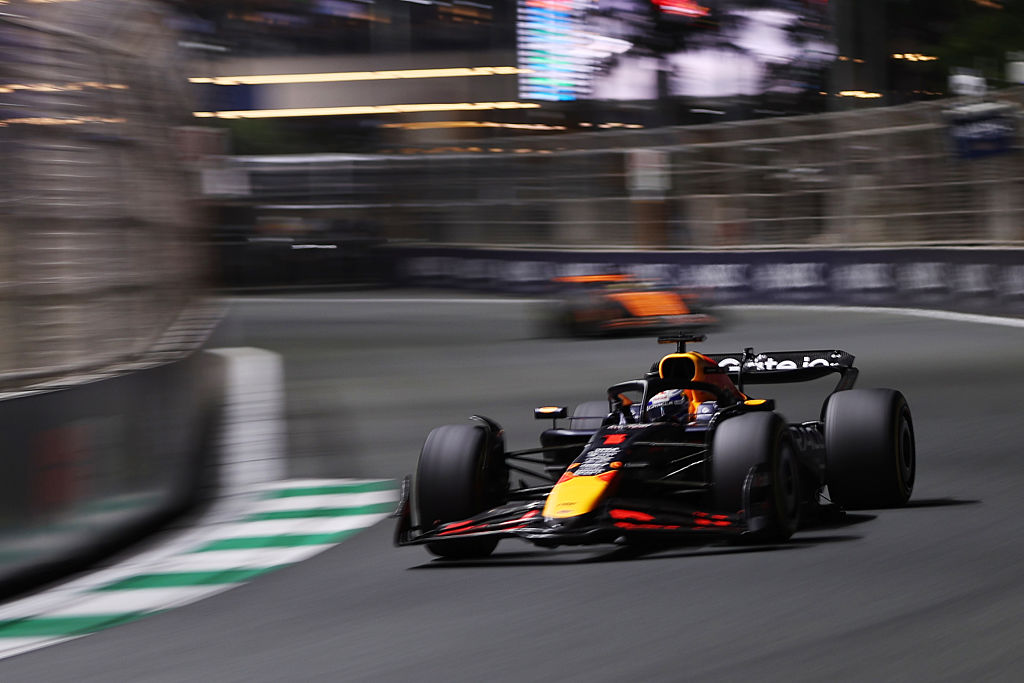Twenty-one countries around the world will host F1 RACES in 2025. The African continent is vying to be a part of it too in the near future-for the prestige and profits down the road.
The sound of roaring supercars is hardly unfamiliar in Africa’s emerging urban landscapes; yet, the distinctive rumble of Formula One (F1) engines has not been heard on the continent since 1993.
For context, Jurassic Park was the highest-grossing film that year, Bill Clinton had just assumed his seat in the Oval Office, and South Africa’s Rainbow Nation was not yet in technicolor.
At the 1993 South African Grand Prix, the 72-lap race at Johannesburg’s Kyalami race-track saw Alain Prost take pole position, beating Ayrton Senna. But as the finish line was crossed and typical Johannesburg thundershowers cascaded, it signaled what has now become more than three decades of Africa being the only inhabited continent without a Grand Prix on the calendar.
Twenty-one countries will host F1 races in 2025. Despite there being only 24 fixtures on the annual schedule, both South Africa and Rwanda are vying for a spot for 2027.
Loading...
“You can’t call it a World Championship if you don’t have a race in Africa,” Motorsport South Africa CEO, Vic Maharaj, points out. “Besides Europe, I think Africa has more of a motorsport culture than just about any other continent on Earth,” claims veteran F1 broadcaster, Sasha Martinengo.
That passion for cars is evident everywhere—from high-performance vehicles to everyday taxis and bakkies (pickup trucks in South Africa) that drivers customize with pride.
Mandla Mdakane, who has been racing since age four and drives for the Toyota Gazoo Racing Team, has witnessed it firsthand.
“You can travel to places and see an old Toyota Cressida, decked out, paint looking lovely. People tuning their exhaust pipes, their rims. We just are car lovers as a nation.”
Seven-time F1 world champion, Lewis Hamilton, has told the Fédération Internationale de l’Automobile (FIA) that it cannot continue adding other locations to the F1 calendar while “ignoring Africa” and has been vocal about his desire to race in Mzanzi before putting the brakes on his career—a dream that incumbent Sports Minister, Gayton McKenzie, has vowed to fulfill.
“The chance of hosting a Formula One Grand Prix in 2027 is the most promising that we’ve had in 20 years,” Martinen- go believes.
It is a sentiment shared by Maharaj, who is a member of the governmental bid’s appropriately-titled Steering Committee. “We were at the altar twice and never got married. This time, we’ve got the rings, the dress, and everything we need”.
The wedding metaphor seems fitting, as any couple who has embarked on the costly excursion would know.
“There’s a commercial rights fee, probably in the region of around $30 million to $40 million per year,” Maharaj explains. “That’s before you’ve even started to put the event on.” Beyond that, there’s the cost of infrastructure, logistics, and operational expenses. The head of Motorsport SA puts it bluntly: “It’s like hosting the Olympics every two weeks.”
In a country riddled with potholed roads, critics argue that these funds could be better spent on infrastructure, electricity, and public services. But others, like Martinengo, feel the returns justify the investment when considering the magnitude of tourism it will generate.
“The amount of wealth and prestige that hosting a Grand Prix brings is astounding. People will come to South Africa, watch the Grand Prix in Johannesburg, then probably head to the Kruger Park or hop on a plane to spend a week in Cape Town. If we do a five-year deal, for example, by the time we do our third Grand Prix, everyone is turning a profit.”
South African political economy analyst, Daniel Silke, believes there is some legitimacy to that, but maintains that transparency is key: “I don’t think we should necessarily ig- nore the concept of a Formula One on the basis that the coun- try’s economy is struggling… that said, I wouldn’t want to see a cost-benefit assessment done by politicians. I would like to see an independently audited cost-benefit analysis.”
What was once considered South Africa’s race to lose has become a fascinating continental competition with Rwan- da. President Paul Kagame, an avid petrolhead, has actively pushed for motorsport in the East African country, even host- ing the 2024 FIA awards ceremony in Kigali last December.
South Africa’s Kyalami track has undergone extensive upgrades and is working towards meeting F1’s strict Grade 1 requirements. “Kyalami is a European-spec track now. It’s undu- lating, technical, and thrilling. Every lap there is amazing,” says Mdakane.
“If Europe and the U.S. can have multiple Grands Prix, why can’t Af- rica?” Maharaj challenges.
Although the financial obstacles cannot be dismissed, Silke can spot glimpses of the checkered flag…
“It would, I think, be beneficial for Africa as a whole. An event of the global magnitude of a Formula One Grand Prix tends to put a country on the map. Even though South Africa is certainly at a low ebb economically with low growth, an event like this, much like the World Cup, does again provide that lift for a country.”
And while here, why not showcase some of Africa’s deep- rooted—if unconventional—driving culture?
“If you want a real motorsport event in South Africa, I say let’s have a HiAce taxi race,” quips Martinengo. “Now that would be something to watch!” Motorsport encapsulates the spirit of fighting for every inch, overcoming obstacles, and never giving up—charac- teristics that resonate profoundly in Africa. The continent is ready to get behind the wheel. Now, it’s up to F1 to decide if they are too.
Loading...
